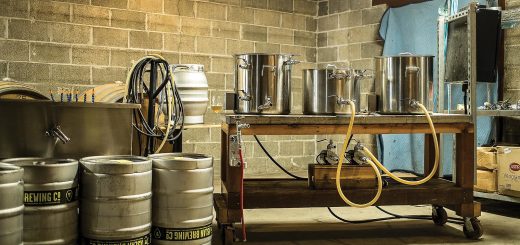The Benefits of Drinking Organic Wine + FAQ

Organic wine is becoming a major buzz word in the wine world these days, so no wonder why more and more people want to learn more about what it actually is. For starters, you’ll be happy to find that organic wine doesn’t cause as horrific hangovers as regular wine does. Plus, conventional wines (even the most expensive ones) are full of pesticides and fertilizers.
What goes into a regular wine?
Most wines today are produced on an industrial scale, with industrial processes. This means that when you pick a bottle from a shelf in a grocery store, chances are it’s made from grapes that were sprayed heavily with pesticides and fungicides (this helps to keep labour costs down and minimize risk of crop loss) and treated with dozens of chemical and biological agents that give the wine specific flavours and textural qualities.
What makes wine organic?

Organic wine is made from grapes that have been grown without the use of artificial or synthetic chemicals, such as pesticides and herbicides. To keep bugs and weeds under control, organic farmers work with nature, rather than against it. How? By boosting their vineyard’s biodiversity. For example, farmers introduce cover crops to provide a habitat for beneficial insects that are the natural enemy of trouble species or have small sheep graze between the vine rows, eating the grass and weeds. These procedures help the vineyard to become a self-regulating natural ecosystem that’s able to fight problems intrinsically, hence eliminating the need for artificial, and potentially toxic, chemicals.
Is organic wine better for you?
The lack of chemical manipulation, both in the field and in the cellar, leads to a wine that is definitely more natural. Wine experts say that organic wine is often the best expression of both the grape and the terroir, as well as of the land and the environment in which it is grown. You know what they say – “you are what you eat (and drink)”. So there’s definitely a certain peace of mind that comes with knowing that no additives or pesticides are present in the wine you are drinking.

Generally speaking, organic wine grapes are much healthier and therefore produce healthier skins and a higher concentration of antioxidants and anthocyanins, including polyphenols and resveratrol. Plus, organic wines are free of residual traces of vineyard additives, which can put a toll on your health. Research has also shown that certified organic wines contain less sugar on average and don’t contain potentially harmful cellar additives such as caramel colouring and flavouring agents. This means that going organic may help prevent that much-feared headache the following day.
Does organic wine have preservatives?

A preservative-free wine is a wine that doesn’t contain any sulphur dioxide. This preservative is what helps protect wine from spoilage by bacteria and oxidation. Although a number of organic wines are preservative-free, some may contain preservatives. For example, in Australia, organic wines do contain minimal sulphur dioxide to comply with Australian organic standards. Know that organic red wines contain lower levels of sulphur dioxide than organic white wines. This is because red wines are high in alcohol and contain tannins. So, your chances of finding preservative-free organic red wines are higher than finding preservative-free organic white wines.
Should you look for any certificates?
Not really. Many winemakers (even the best ones) refuse to go through the process of organic certification, even though they make their wine that way because they don’t consider it worthy of their time and money. The idea that good wine has to be expensive is also a myth. Wondering where to buy organic wine? You can find great deals for $10 but you need to look around. Wine shops, owned by people who care about their products and have tested everything they sell, usually look for the most passionate and the best winemakers. Find a shop that does exactly that and you’ll no longer have to worry about drinking bad quality wine.
Does organic wine give you a hangover?
Organic wines tend to be lighter than conventional wines, which means they have less alcohol. This also means that you can drink more wine without getting a hangover. Although it still hasn’t been proven whether other additives in wine contribute to hangovers, a lot of people who have switched to drinking organic wine have reported feeling much better the day after they have drank too much.
Why you should start drinking organic wine?

The foods and drinks you consume not only affect your body but they also affect the environment. Using toxic chemicals in vineyards pollutes the watersheds, contributes to soil depletion and limits biodiversity. Organically grown grapes, on the other hand, help the ecosystem and work in tandem with nature, which means they contribute to maintaining the earth greener as well.







